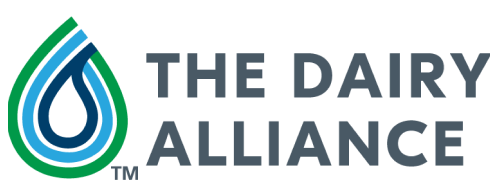Fuel Up with Performance and the Environment in Mind
Athletes know that good nutrition can help enhance athletic performance and preserve the health of their bodies. Being intentional with food can provide athletes with the energy to finish a race, push harder, recover faster, and prevent injury. Athletes are naturally conscious eaters and understanding that there is a limited supply of fuel and fluid to get them through their practice or event makes them aware of the finite resources that affect how they eat daily. Athletes can use the same intentional effort and significantly impact the environment by eating with sustainability in mind.
To eat with sustainability in mind, one must understand that there is a limited supply of resources such as fossil fuels, farmland, clean water, and food. Then, make conscious food choices with these finite resources in mind. Understanding how food is grown, processed, transported, distributed, prepared, consumed, and disposed of contributes to reducing or restoring our finite resources.
The U.S. dairy community has a strong track record of taking care of animals, air, land, and water and is a leader in environmental stewardship efforts. The ecological impact of producing a gallon of milk in 2017 shrunk significantly from 2007, requiring 30% less water, 21% less land, and 19% smaller carbon footprint. That is good news for the athlete who is also a conscious eater because drinking milk after exercise may benefit performance and recovery of muscle function and reduce muscle soreness and tiredness. After resistance training, plain milk is superior to many alternative beverages for increasing muscle mass.
Eating a more plant-based diet may have a positive impact on the environment and an athlete’s health, but it is important to make sure essential nutrient needs are being met. Pairing plant-based foods with high-quality protein dairy foods provides vital nutrients that many athletes need: fiber, potassium, vitamin D, and calcium. Feature dairy in meat-free dishes for a source of high-quality, complete protein. For example, a vegetarian chili recipe or plain baked potato can be topped with cheddar cheese or plain Greek yogurt. One ounce of cheese, such as cheddar, Colby, or Swiss, can have as much protein as an egg! Did you know that cheese can be an essential source of calcium for those with lactose intolerance? It’s true! Natural cheeses such as cheddar, Colby, and Swiss contain minimal lactose.
Other sustainability factors, such as food waste, food packaging, transportation, and agricultural practices impact the environment as well. Often, athletes are on the go and utilize pre-packaged, individually portioned foods for convenience. Here is an opportunity for athletes to continue to eat with their performance and environment in mind. Shopping in bulk benefits eco-conscious consumers by reducing packaging waste, as products are often available without excessive packaging, minimizing plastics.
Dried beans, oats, peanut butter, nuts and seeds, dried fruit, and frozen fruits and vegetables are some examples of nutritious items with long shelf life. These foods can be stored in the pantry, freezer, or fridge for many months, so purchasing them in bulk is a wise choice. To limit over-serving oneself out of larger quantities, pre-portion bulk foods into glass or reusable containers, keeping the grab-and-go ease of pre-packaged snacks without waste. Purchase larger containers of protein-rich Greek yogurt, calcium-rich blocked cheeses, and muscle-building whey-protein powders. All can help athletes save money and reduce plastic waste while nourishing their bodies.
Adequate hydration is essential for proper muscle function and for avoiding cramps. Investing in a reusable water bottle is one of the simplest ways to gain a competitive advantage and be a conscious drinker. This one act helps reduce plastic use, which is the most destructive to the environment.
Making informed choices, such as sustainably produced dairy milk, can further contribute to a healthier environment. Athletes already value good nutrition: with simple strategies, they can also be champions of sustainable eating.
Rebecca Turner
Using print, TV, and the radio, Rebecca Turner translates the complex world of nutrition into understandable, and achievable concepts. Purchase her books Mind Over Fork and Enjoy Good Health on Amazon. On weekdays, she hosts Good Things with Rebecca Turner on SuperTalk Mississippi. Connect with her online at RebeccaTurnerNutrition.com.






